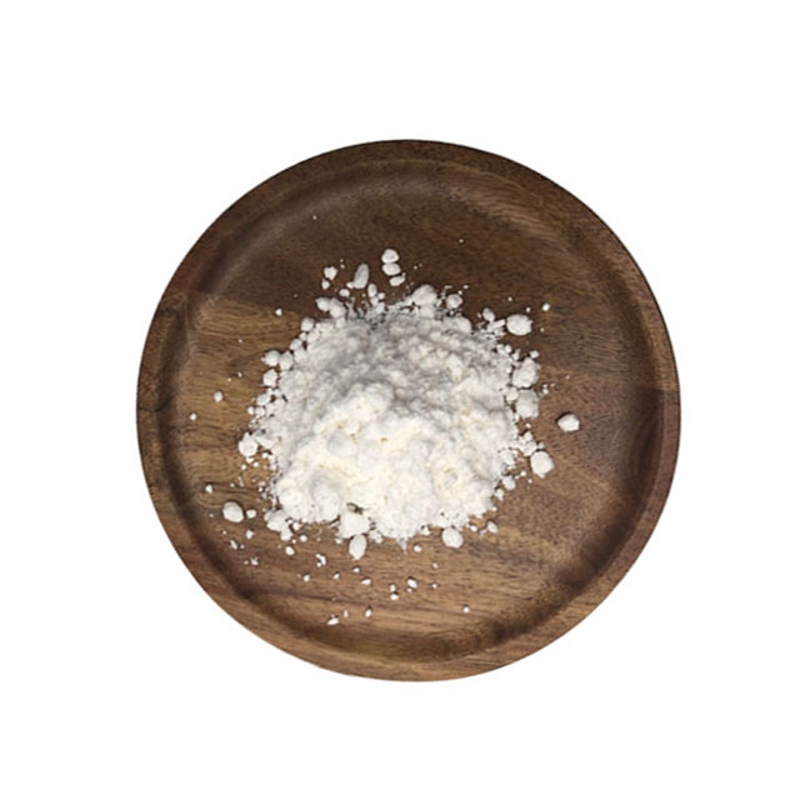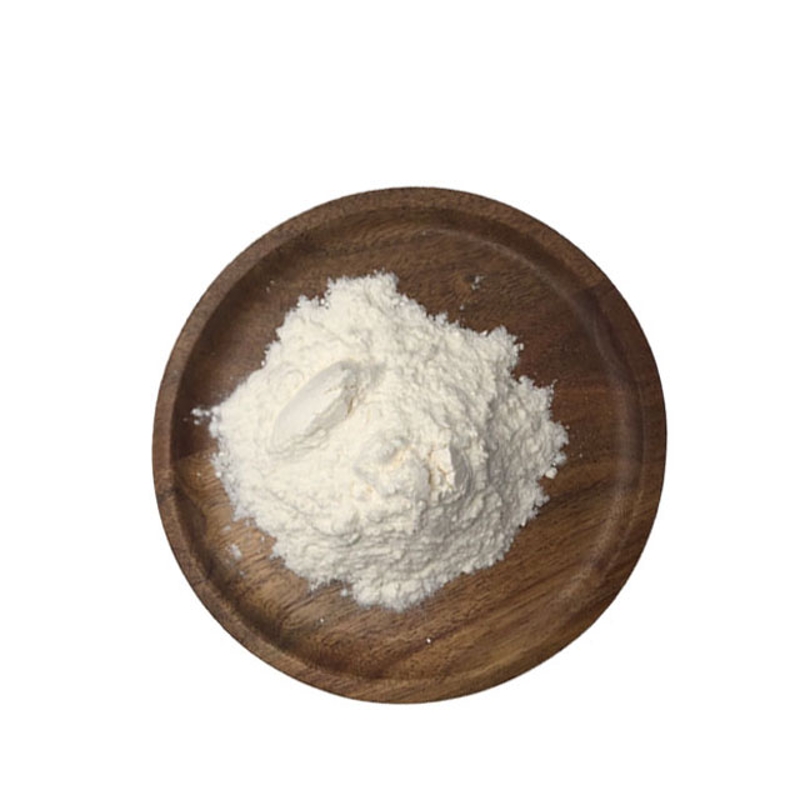PROFESSOR ASCO 2020 CHEN JIE: EVEN IF SMALL, EFFORTS NEED TO BE MADE TO MOVE FORWARD, ASCO ON THE NETS-RELATED RESEARCH.
-
Last Update: 2020-07-31
-
Source: Internet
-
Author: User
Search more information of high quality chemicals, good prices and reliable suppliers, visit
www.echemi.com
.
. Professor Chen Jie:
at the
ASCO
this year, there are several abstracts on NETs that deserve attention, including an epidemiological summary, two molecular marker abstracts, two summaries of PRRT treatment, and three summaries of chemotherapy and
molecular targeting
therapy.
.
.
. Introduction to the
Study of the
of
of the
of thethe
of the epidemiological study on the risk of cancer death in PATIENT patients
the
of
the the cancer-specific for patient s patient s disease dated with the
ofs: A-population analysis. 4605 Poster Session Board #213)
First Author: Julie Hallet, Odette Cancer Centre, Toronto, ON, Canada
Professor Chen Jie:
an epidemiological survey in Canada comparing the risk ratio of cancer and non-tumor-related causes of death in patients with NETs. Conclusion: In NETs patients, tumor-related death swelled significantly higher than other causes of death, but the risk of tumor-related death in NETs patients had heterogeneous, mainly in the impact of tumor on tumor-related death, the tumor-induced direct death patients with the primary site as the lungs and bronchial tubes and pancreas as the largest, and the other side of the stomach, small intestine and colon NETs patients with non-tumor-related deaths exceeded the causes of tumor-related death.
.
. Molecular markers
study
the correlation and prognosis of DLL3 expression and the absence of RB1 in patients with
gastrointestinal neuroendocrine tumor (GEP-NENs)
.
. Correlation of DLL3 expression in gastroenteroparc neuroendo crine neoplasms with loss of RB1 and prognostic zonce.(4611 Poster Sessions #219)
First Author: Chiara Liverani, Osteoncology and Rare Tumors Center, Istituto Scientifico Romagnolo per lo Studio e la Cura dei Tumori (IRST) IRCCS, Meldola, Italian
Professor Chen Jie:
a basic study from Italy on tumor markers, It mainly explores the expression of DLL-3 in high-level NENs, and the results show that dLL-3 is significantly higher in neuroendocrine cancer (NEC), and that DLL-3 expression is associated with the absence of RB-1. Patients with DLL-3 expression are also consistently negative and have a poor prognosis, so the DLL3 protein may be like RB and TP53 as a potential identification of NEN differentiation, whether it is an important biomolecular marker of NETNEC.
.
.
. Introduction to the
Trial
neuroendocrine tumor
diagnostic
technology serum chrophilina A (CgA) and NETest detection of an efficient comparative study
inacy of chromogranin a
assad asendocrineeeeeeee (4612 Poster Session Board #220)
.
First Author: Anna Malczewska, Medical University of Silesia, Katowice, Poland
. Professor Chen Jie:
a study of NETs tumor markers from Poland comparing the detection rate of THE NET by the traditional NETs generic marker serum CgA and the emerging liquid biopsy marker NETest, which has been developed in recent years. The results showed that cgA had an overall detection rate of only 21-35% for NETs, while neTest was 99% high eras for NETs. As a result, NETest is significantly superior to traditional serum CgA testing, and it is possible to replace traditional serum CgA testing with NETest in the future.
.
. Introduction to the
study of prRT treatment
patients with metastatic gastroenterocrine neuroendocrine tumors (mGEP-NETs) treated with 177Lu-octade PRRT.
.
cycs in patients with metastatic gastroentero-bluc neuroendocrine tumors receiving daer dre-peptide sydd dywedodd 177lu-dotatate- impact of treatment and combination on mortality. (4606 Poster Sessions, board #214)
. First Author: Alexander Rheinhard Siebenhuener, Klinik fur Medizinische
Onkologie und Hamatologie, Universits Spital Zurich, Professor Z urich, Switzer
Chen Jie:
in the field of PRRT treatment, a study from Switzerland, retrospectively analyzed 41 patients with mGEP-NETs with 177Lu-otrinite treatment and quality of life. Another interesting finding of this study is that patients who have used selective invivia therapy (SIRT) prior to PRRT treatment may lead to increased mortality, especially in patients with pNETs. Conversely, patients who used PRRT treatment and then maintained treatment with a long-acting growth inhibitor analogue had a survival benefit trend. It appears that the sequence of use of PRRT in conjunction with other treatments may affect the patient's overall survival, although this study is only a retrospective study, and it is hoped that future prospective studies will be explored further.
.
.
.
Study
the Australian Gastrointestinal TestIng Group (AGITG) CONTROL NET Study: Evaluation of 177Lu-Octate PRRT (177LuTate PRRT) Joint CAPTEM (Caperabin-timoamine) Programme Chemotherapy Efficacy Phase II Study - Pancreas and Updated Neuroendocrine Tumors (pNETS) Preliminary Results
.
Australasian Gastrointestinal Gastro trials Group (AGITG) CONTROL NET Study:
. Phase II study the activity y 177Lu-Octreotate peptide
radionuclide therapy (LuTate PRRT) and capecitabine, Temozolomide CAPTEM- First Results for pancreas and updated midgut neuroendocrine tumors (pNETS, mNETS. (4608 Poster, Board #21)
First Author: Nick Pavlakis, Northern Cancer Institute, St Leonards, Sydney, Australia. Professor Chen Jie,
: "
this parallel prospective phase II clinical study from Australia compared the efficacy of 177LuTate-PRRT joint CAPTEM program with 177LuTate-PRRT on metastatic neuroendocrine tumors, and 177LuTate-PRRT and TEMCAP programs in conjunction with THE efficacy of THE TEM-CAP programme on metastatic pancreatic neuroendocrine tumors." The study currently involved 75 patients, of which 47 cases of neuroendocrine tumors in the intestine, 28 cases of pancreatic neuroendocrine tumors, preliminary research data show that the CAPTEM joint PRRT group for the treatment of neuroendocrine tumors in the intestine, or for pancreatic neuroendocrine tumors, although PFS did not show significant differences, but ORR seems to have an increased trend, in the pancreatic neuroendocrine tumor patients better than single-use CAPTEM chemotherapy, for the central neuroendocrine-endocrine tumor. Of course, joint programmes have correspondingly higher levels of 3 to 4 toxicity.
.
. Introduction to the
Study in the Field of Medicine
SANET-ep Study: a Phase III clinical trial comparing Sofantini and placebo treatment of advanced pancreatic neuroendocrine tumors
health-quality-of-life-life-ssanet-ep-phase-iii study
of
(4613 Poster Session, Board #221)
First. Author: Chunmei Bai, Peking Union Medical Hospital, Beijing, China
Professor Chen Jie:
targeted drug sector, it is worth noting the domestic new drug Sofantinib. The sANET-ep trial of the efficacy of Sofantini for patients with non-pancreatic source NETs was reported at last year's ESMO conference, and this year's study reported at ASCO looked at the toxicity, tolerance, and effects of Sofantini's use in patients with non-pancreatic source NETs, which showed better clinical tolerance and a relatively good quality of life for treated patients. Expect the results of the drug's results in pancreatic neuroendocrine tumors.
. <
This article is an English version of an article which is originally in the Chinese language on echemi.com and is provided for information purposes only.
This website makes no representation or warranty of any kind, either expressed or implied, as to the accuracy, completeness ownership or reliability of
the article or any translations thereof. If you have any concerns or complaints relating to the article, please send an email, providing a detailed
description of the concern or complaint, to
service@echemi.com. A staff member will contact you within 5 working days. Once verified, infringing content
will be removed immediately.







